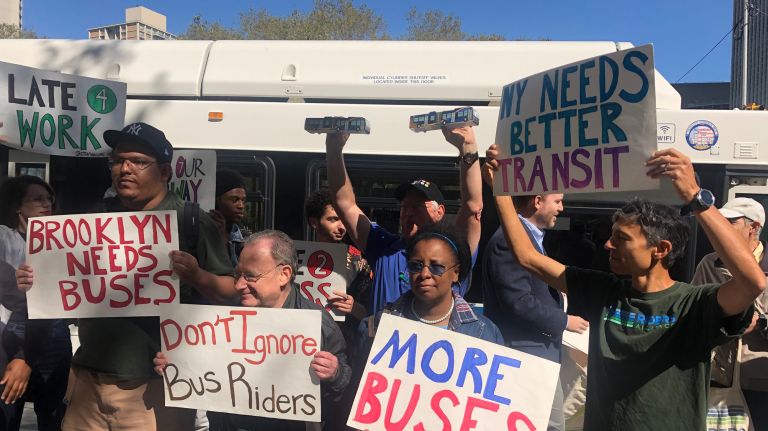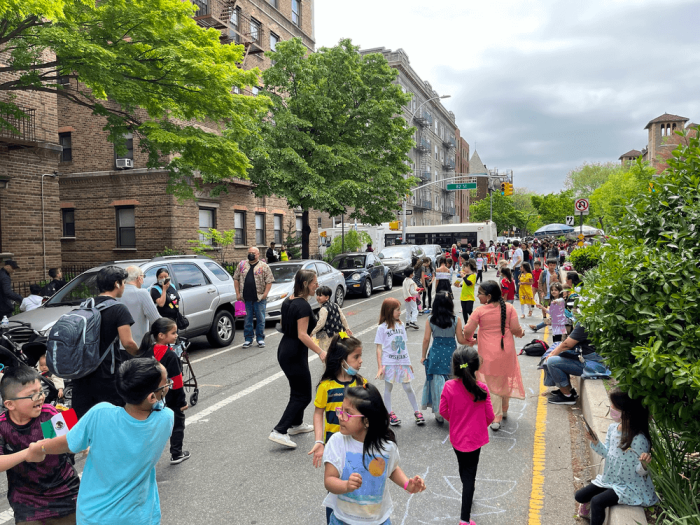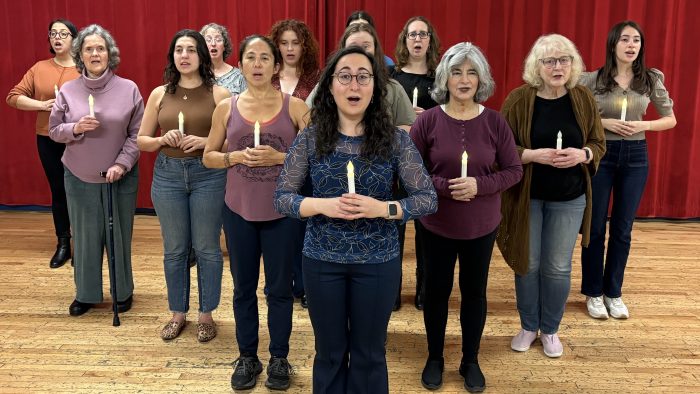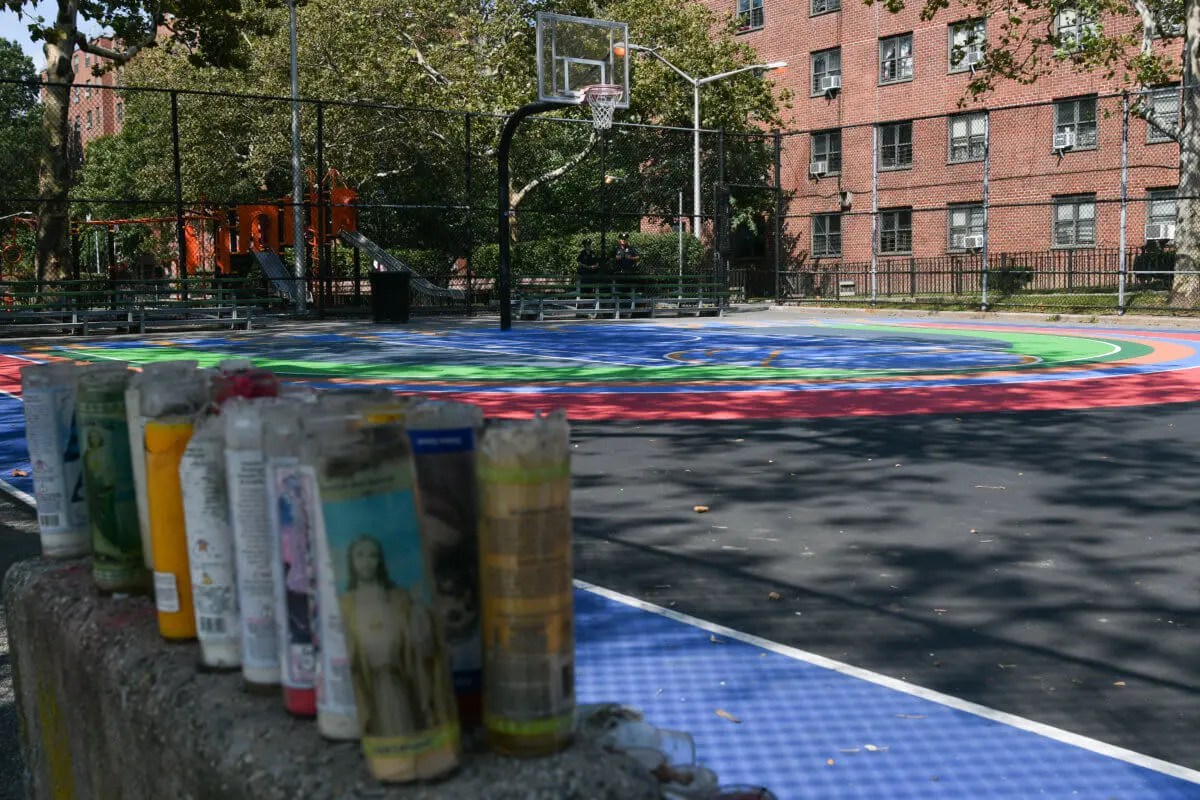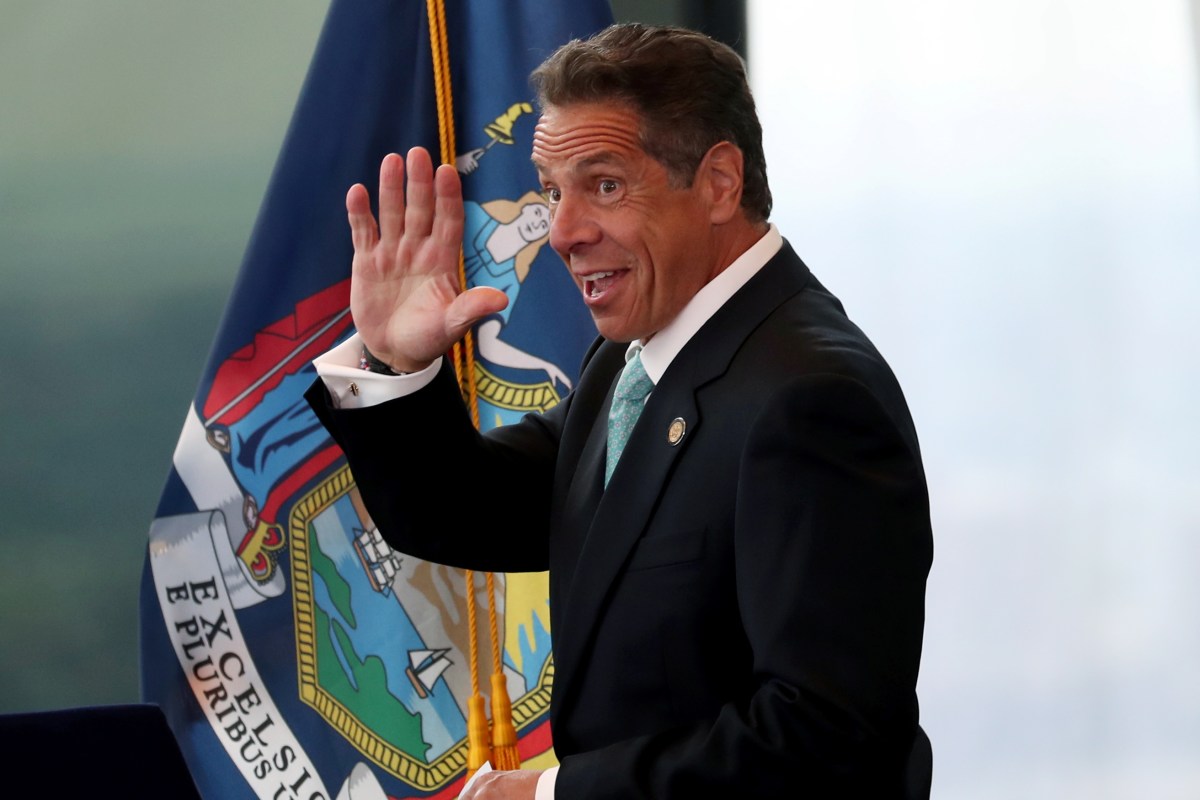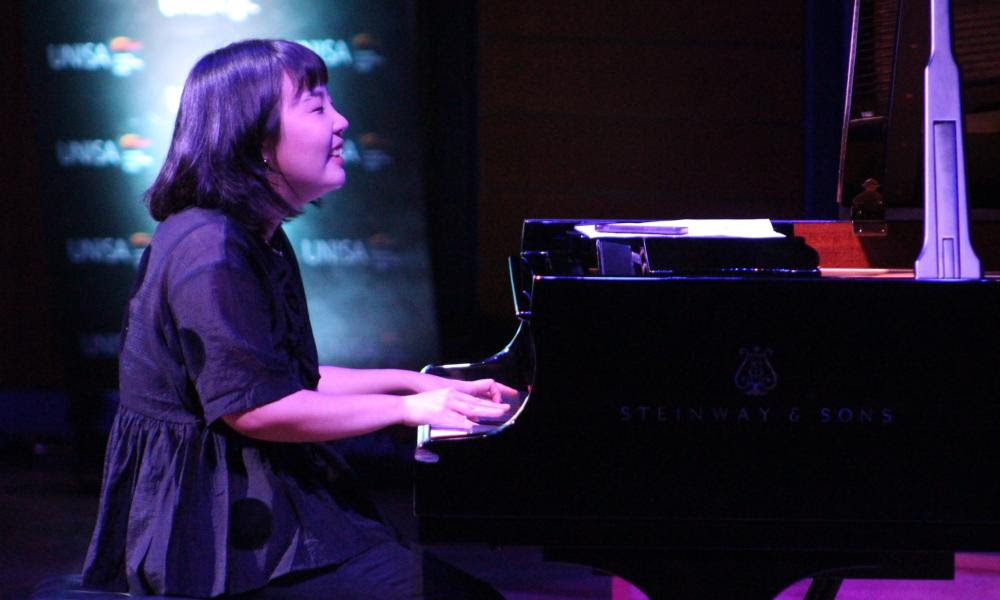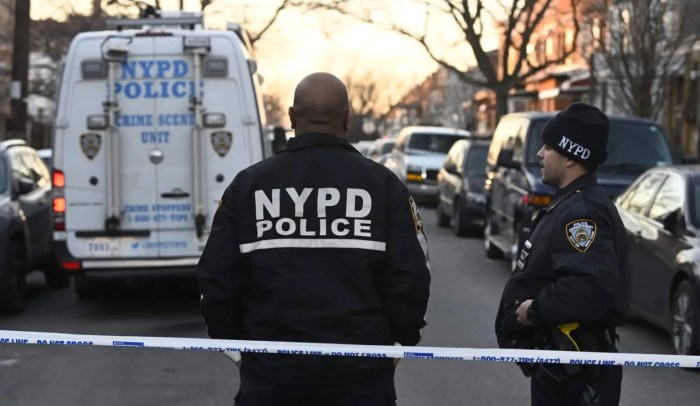
Service cuts should not be on the table as the MTA navigates through another budget crisis, politicians and advocates warned Thursday.
Facing the prospect of a $1 billion budget gap in 2022, authority officials have said significant bus and subway service cuts may be necessary to balance its books, beginning as early as this fall.
Meanwhile, the minor changes already announced by the MTA have frustrated transit advocates and elected officials, who gathered outside Brooklyn Borough Hall Thursday to highlight the harm caused by reducing the daily runs of the B38 bus. While they called on the governor and the MTA to avoid ravaging an already struggling transit network, the authority simultaneously announced it would cut back the number of daily trips made by another bus: the B46 Select Bus Service, the busiest route in Brooklyn with an average of 38,120 weekday riders.
“We want a commitment from them that they will not cut service on the backs of subway and bus riders,” said Stephanie Burgos-Veras, a campaign manager at Riders Alliance. “This is not the time for us to be reducing service because there is a lot at stake at the moment.”
The two dozens gathered near Brooklyn Borough Hall expressed concern about the MTA entering a so-called "death spiral." The authority found itself in that position in 2010, when ridership plummeted. The MTA responded by cutting service to save money, which in turn pushed more riders to avoid buses and trains. The 2010 reductions drove down bus service by 1% citywide, according to the agency’s own analysis.
Last week, NYC Transit President Andy Byford said his agency would “look at every possible way” to avoid a repeat. But the MTA has already nicked service on a handful of bus routes since the spring. The authority reduced service on 11 routes in May as well as another three routes — B38 in Brooklyn, the Bx35 in the Bronx and the Q12 in Queens — in July. Those three routes were assigned longer, articulated buses, which the MTA argues can carry more passengers.
And as electeds on Thursday championed the importance of bus service to its ridership — more often lower-income New Yorkers of color — the MTA announced the B46 SBS would no longer make as many daily trips as part of a package of service changes the authority touted as enhancements. The MTA said the B46, which runs from Mill Basin to Bedford-Stuyvesant, will be able to accommodate a greater number of people on articulated buses, though they will need to wait longer at stops. The authority said the new plan, which also involves increasing service on the Q55, Q28 and S93, will save the MTA $2.4 million annually.
“It’s no secret that the MTA is in a dire financial situation, and we are required to balance our operating budget,” MTA spokeswoman Amanda Kwan said in a statement. “Today we announced that we’re increasing service on routes that benefit tens of thousands of riders in Queens, Brooklyn and Staten Island, while saving money. Who wouldn’t be in favor of that?”
Brooklyn Assemb. Walter Mosely, for one. Mosely decried the B38 changes while urging his colleagues to help close the MTA’s budget gap with additional financial support.
This year, the state authorized congestion pricing tolling for Manhattan as well as other new taxes, but related revenue can only go toward MTA capital expenses, not day-to-day operating costs.
“We passed congestion pricing earlier this year. We made a commitment to invest billions into our … transit systems,” Mosely said. “We need to find more solutions that will take riders out of the equation.”
Patrick Muncie, a Cuomo spokesman, issued a statement blasting advocates.
"We get that all the Riders Alliance has to do all day is complain, but we are busy actually working for the riders," Muncie said, without addressing how or if the state would step in to prevent service cuts.



